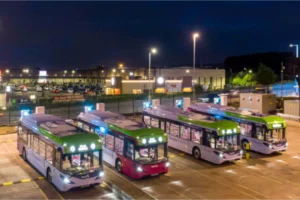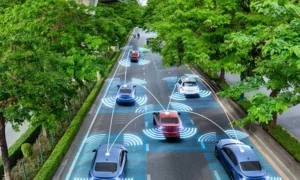A small number of autonomous vehicles on the road network could help deliver fewer emissions as well as help traffic flow faster and safer, according to a new report by researchers at the University of Bar-Ilan University in Tel Aviv.
The researchers modelled the flow of hybrid traffic, that which combines traditional, human-operated vehicles with a small fraction of autonomous vehicles. They were able to produce a set of guidelines and regulations that allow AVs to be self-organised into constellations. Through this, dynamic control of traffic flow is made possible.
The guidelines promote cooperation between AVs that mean that even when fewer than 5% of the vehicles on the road are autonomous, they couldstill have an impact on the traffic flow.
The researchers said how autonomous vehicles should behave on a freeway in order to self-organise into groups that split the traffic flow into controllable clusters. The results showed that it took less than two minutes to achieve self-organised high-speed, greener and safer traffic flow when starting from congested traffic.
The researchers said a substantial increase of up to 40% in traffic flow speed with up to a 28% decrease in fuel consumption was witnessed.
The study showed that these improvements can be achieved without a central agent that governs AVs and without communication between AVs using current infrastructure.





















